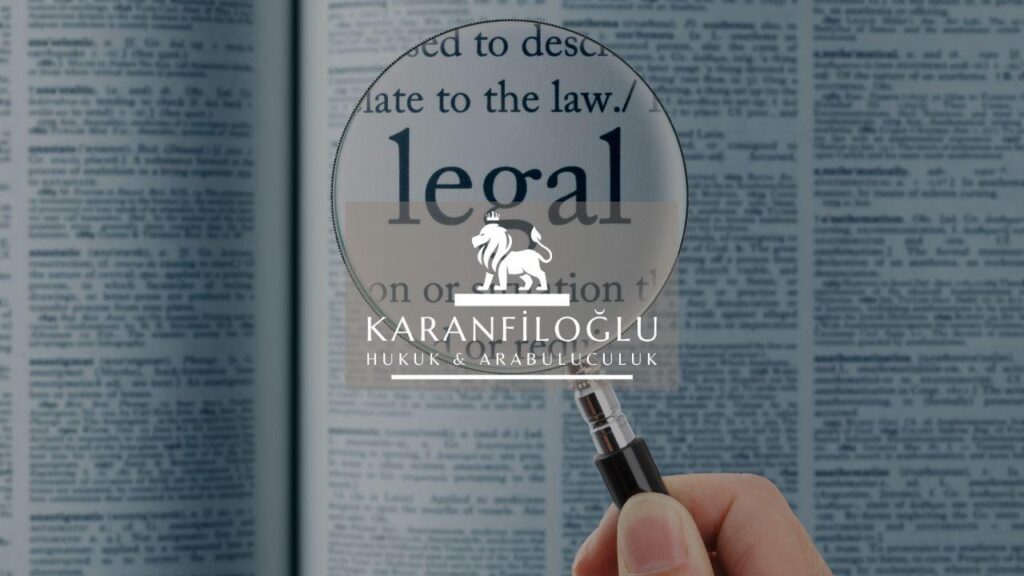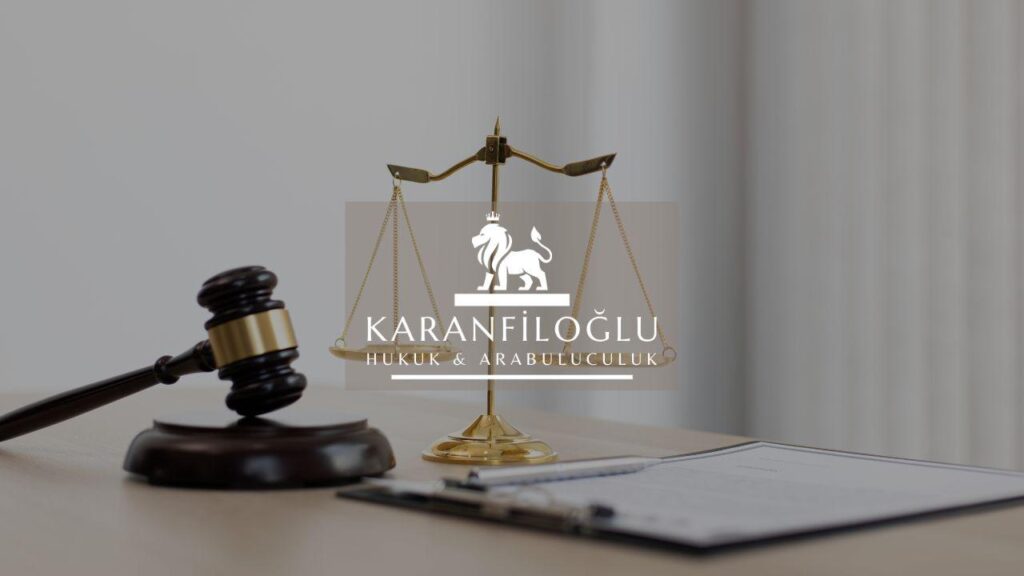In recent years, Turkey has faced a significant increase in its nuclear energy projects, making an understanding of Turkish nuclear regulations vital for stakeholders involved. The primary legal framework governing nuclear energy in Turkey is the Turkish Atomic Energy Authority Law No. 2690, which outlines the regulatory and supervisory functions of the Turkish Atomic Energy Authority (TAEK). Complementing this is the Law on the Establishment and Operation of Nuclear Power Plants and Energy Sales (Law No. 5710), providing a detailed regulatory landscape for the establishment, operation, and commercial aspects of nuclear power plants. Additionally, the Radiation Safety Regulation sets forth stringent safety protocols to protect individuals and the environment. At Karanfiloglu Law Office, we offer specialized legal services to navigate these complex regulations, ensuring compliance and facilitating smooth project execution within the bounds of Turkish nuclear law.
Overview of Key Nuclear Regulatory Bodies in Turkey
The primary authority responsible for regulating nuclear activities in Turkey is the Turkish Atomic Energy Authority (TAEK), established by the Turkish Atomic Energy Authority Law No. 2690. TAEK oversees the licensing, inspection, and control of nuclear facilities and ensures compliance with national and international nuclear standards. Additionally, the Ministry of Energy and Natural Resources (MENR) plays a significant role in policy-making and strategic planning for nuclear energy, operating under various legislations including Law No. 5710. Collaboration between TAEK, MENR, and other regulatory bodies such as the Disaster and Emergency Management Authority (AFAD) and the Ministry of Environment and Urbanization is crucial for a seamless regulatory framework that addresses both operational and safety aspects of nuclear energy projects in Turkey. At Karanfiloglu Law Office, we are well-versed in navigating the complexities of these regulatory bodies, providing our clients with comprehensive legal strategies that ensure full compliance.
Another key regulatory body is the Turkish Nuclear Regulatory Authority (NDK), established under the Presidential Decree No. 4/101 with the responsibility of conducting nuclear safety and security regulations independently from TAEK. NDK is tasked with approving the design, commissioning, and decommissioning of nuclear facilities, ensuring that all nuclear activities conform to rigorous safety norms and international best practices. The NDK collaborates with the Turkish Atomic Energy Authority to guarantee that nuclear power plant operators adhere to the Radiation Safety Regulation and other related statutes. Additionally, NDK’s role includes assessing environmental impact reports in consultation with the Ministry of Environment and Urbanization to ensure that nuclear projects do not adversely affect public health and the environment. At Karanfiloglu Law Office, our team leverages in-depth knowledge of NDK regulations to advise our clients effectively, securing necessary approvals and maintaining rigorous compliance throughout the lifecycle of nuclear projects.
Furthermore, the Turkish Standards Institution (TSE) also contributes to the regulatory landscape by developing and implementing standards relevant to nuclear energy and radiation protection. This includes standards for the construction and operation of nuclear facilities, ensuring that they meet both national requirements and international guidelines, such as those set by the International Atomic Energy Agency (IAEA). The TSE standards complement the regulatory efforts of TAEK and NDK, facilitating a holistic approach to safety and quality assurance. Similarly, other governmental bodies, like the Ministry of Health, are involved in monitoring and managing the impact of nuclear activities on public health, as specified under the Public Health Law No. 1593. These collaborative efforts ensure a multi-faceted regulatory network that comprehensively addresses all aspects of nuclear energy projects. At Karanfiloglu Law Office, we stay updated with these diverse regulations and standards, providing our clients with expert guidance to navigate the complexities of Turkish nuclear regulations effectively.
Compliance Requirements for Nuclear Projects in Turkey
Compliance with Turkish nuclear regulations is paramount for any entity engaging in nuclear energy projects within the country. According to the Turkish Atomic Energy Authority Law No. 2690, entities must obtain necessary permits and approvals from the Turkish Atomic Energy Authority (TAEK) to initiate any nuclear-related activities. Additionally, under Law No. 5710, detailed feasibility studies and environmental impact assessments are mandatory prerequisites before the commencement of construction. It is also compulsory to adhere to the stringent safety and radiation protection standards outlined in the Radiation Safety Regulation, which aims to safeguard public health and the environment. Ensuring thorough compliance with these legal requirements not only facilitates the smooth progression of nuclear projects but also mitigates potential legal and operational risks. At Karanfiloglu Law Office, our expertise in navigating these complex regulations ensures that your projects align seamlessly with Turkish nuclear laws and standards.
Additionally, Turkey’s nuclear regulatory framework necessitates strict adherence to licensing protocols outlined in Law No. 5710. Applicants must undergo a multi-stage licensing process that includes securing a Site License, Construction License, and Operating License. The Site License, governed by Article 8 of Law No. 5710, requires comprehensive documentation demonstrating the site’s suitability for nuclear activities, including geological, seismological, and environmental assessments. Once a Site License is granted, entities must obtain a Construction License through TAEK, which involves detailed design and safety analysis, as per the provisions of the Radiation Safety Regulation. Finally, before commencing operations, an Operating License must be secured, ensuring that all operational procedures meet TAEK’s rigorous safety and security standards. At Karanfiloglu Law Office, we provide specialized legal counsel to guide clients through each stage of the licensing process, ensuring compliance with all regulatory requirements and facilitating the lawful establishment and operation of nuclear facilities in Turkey.
Furthermore, compliance with the regulatory framework extends beyond initial approvals and licensing stages. Continuous monitoring and reporting obligations are essential aspects governed by Law No. 2690 and the Radiation Safety Regulation. Regular inspections by TAEK ensure that nuclear facilities operate within stipulated safety margins and adhere to all technical and operational standards. Entities must maintain comprehensive records of all safety measures, incident reports, and routine operational data, which are subject to periodic review. The Radiation Safety Regulation mandates ongoing environmental monitoring to promptly detect and mitigate any radiological risks. Moreover, emergency preparedness and response plans must be routinely updated and tested to meet TAEK’s stringent requirements. At Karanfiloglu Law Office, we offer extensive legal support to ensure our clients maintain compliance throughout the operational lifecycle of their nuclear projects, minimizing risks and fostering a culture of safety and regulatory adherence.
Navigating the Legal Landscape of Nuclear Energy Investments in Turkey
Navigating the legal landscape of nuclear energy investments in Turkey requires a comprehensive understanding of the prevailing laws and regulations. One of the key statutes is the Turkish Atomic Energy Authority Law No. 2690, which grants TAEK the authority to oversee the safety, security, and regulation of nuclear materials and facilities. Furthermore, the Law No. 5710 on the Establishment and Operation of Nuclear Power Plants and Energy Sales plays a critical role in defining the procedural and substantive requirements for obtaining the necessary licenses and permits. This legal framework is bolstered by the Radiation Safety Regulation, which mandates rigorous safety measures to protect human health and the environment from ionizing radiation. Compliance with these laws is imperative, and Karanfiloglu Law Office provides expert legal guidance to ensure stakeholders adhere to these stringent requirements while smoothly advancing their nuclear energy projects.
For investors, the complexity extends beyond domestic regulations, as Turkey is also a party to several international agreements that affect nuclear energy projects. Understanding the implications of these treaties, such as the Convention on Nuclear Safety and the Joint Convention on the Safety of Spent Fuel Management and on the Safety of Radioactive Waste Management, is essential for compliance. Domestic legislation, like the Environmental Impact Assessment Regulation (Article 10), also intersects with nuclear regulation, requiring comprehensive environmental assessments before project initiation. These assessments must evaluate the potential impacts on local ecosystems and public health, ensuring that all necessary precautions are taken. At Karanfiloglu Law Office, our legal experts have extensive experience in navigating both domestic laws and international obligations, providing tailored strategies to help clients meet all regulatory requirements efficiently and effectively.
Furthermore, navigating the legal landscape of nuclear energy investments in Turkey requires meticulous attention to contractual intricacies and dispute resolution mechanisms. Investors must be aware of the regulatory stipulations regarding liability and insurance as articulated in the Decree Regarding Insurance of Nuclear Risks (Article 4). This decree mandates sufficient financial security to cover potential damages arising from nuclear incidents, adding another layer of precaution. Additionally, contractual agreements with vendors, contractors, and subcontractors need to align with the regulatory framework to mitigate risks effectively. Dispute resolutions often involve arbitration or litigation, depending on contractual clauses and the nature of the dispute. At Karanfiloglu Law Office, we specialize in drafting and reviewing contracts to ensure they meet legal standards, and we offer robust representation in dispute resolution processes, thus enabling our clients to achieve their objectives while upholding regulatory compliance.
Disclaimer: This article is for general informational purposes only and you are strongly advised to consult a legal professional to evaluate your personal situation. No liability is accepted that may arise from the use of the information in this article.







